Ko Swe Win (Myanmar)
In Yangon, Swe Win started as a stringer for Al Jazeera and New York Times and even set up a short-lived, self-financed Internet news service. The first important opportunity came when Myanmar Now was launched in 2015, with seed financing from the Thomson Reuters Foundation. Myanmar Now is an independent online news service focused on long-form investigative reports in both Burmese and English, available for syndication.
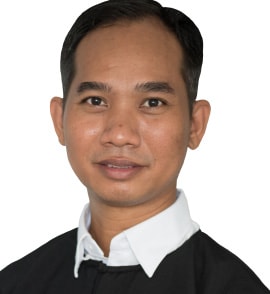 With Swe Win as editor-in-chief since 2016, the news service has built a strong reputation for well-researched, in-depth articles on critically selected, underreported human rights and social justice issues.
With Swe Win as editor-in-chief since 2016, the news service has built a strong reputation for well-researched, in-depth articles on critically selected, underreported human rights and social justice issues.
Swe Win and Myanmar Now draw strength from the fact that they are making a difference. With a current readership of 350,000, the news service is highly regarded for the quality, balance, and depth of its reporting on high-impact issues, including land grabbing, child labor, and abuse of domestic workers. It exposed anomalies in the Myanmar Human Rights Commission; in a political indoctrination program ran by the army for civil servants; in the secret operation of some fifty prison labor camps where prisoners are made to work in quarries and mines; and in the activities of the Association for the Protection of Race and Religion, a movement of xenophobic, anti-Muslim extremists. Swe Win is encouraged that public awareness has been raised and government has responded positively in a number of cases, punishing officials or changing policies.
A growing problem in Myanmar and the world, Swe Win says, is “intolerance and hostility towards different races and nationalities being exploited as a political weapon.” “Only the promotion of human rights,” he says, “can help us contain this deplorable trend.”
In his receiving the award, he said, “The predominance of the military’s role, combined with the continued armed clashes in a number of ethnic minorities and the rise of nationalism, is the major challenge facing the independent media in Myanmar.
This situation constantly instills a sense of threat into civil life and the news media circle. But having passed through various political and social turbulences over the past decades, we have developed a great resilience and a tremendous amount of patience for the problems in our country…
In this context, journalism plays a crucial role—the kind of journalism that seeks the truth, that protects the fundamental rights of human beings, that is not colored by political and religious dogmas and, above all, that is driven not by animosities against anyone or any entity but by a great compassion for the most unfortunate communities and individuals in a society.”
Neelapaijit, Angkhana (Thailand)
In 2009, with the help of non-government organizations and her own family, Angkhana founded Justice for Peace Foundation (JPF), a network of human rights and peace advocates that has done important work in documenting the human rights situation in southern Thailand, thus raising public awareness and putting pressure on government to act on human rights cases, providing legal assistance to victims; and training women on human rights and the peace process. In 2015, Angkhana was named commissioner of the National Human Rights Commission of Thailand, the only Commission member with grassroots human rights experience.
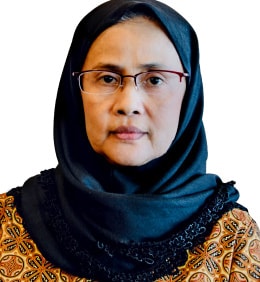 A predominantly Muslim region in a staunchly Buddhist country, southern Thailand has struggled with religious and ethnic conflict since a separatist insurgency rocked the region in 1948. Insurgency and militarization have exacted a heavy toll: it is reported that of the more than 6,000 people killed in the conflict since 2004, some ninety percent of these were civilians.
A predominantly Muslim region in a staunchly Buddhist country, southern Thailand has struggled with religious and ethnic conflict since a separatist insurgency rocked the region in 1948. Insurgency and militarization have exacted a heavy toll: it is reported that of the more than 6,000 people killed in the conflict since 2004, some ninety percent of these were civilians.
These deaths have included the unsolved killings of more than thirty civil society and human rights activists. One of the more sensational of these killings was the “enforced disappearance” in 2004 of noted human rights lawyer Somchai Neelapaijit, who was abducted in Bangkok the day after he had publicly accused the military of torturing detainees in southern Thailand.
Somchai’s enforced disappearance and subsequent death was a tragic blow to the cause of human rights in the country, and a devastating personal nightmare for his family. But it would also be the beginning of a remarkable journey for Somchai’s widow, Angkhana Neelapaijit, herself a Muslim Thai of humble origins. When her husband “disappeared,” Angkhana was a housewife looking after their five young children and a small business.
Thrust into a dangerous and public controversy, she valiantly worked to bring the police officers involved to trial, but due to a flawed justice system they were acquitted. Despite the death threats she received, Angkhana continued to seek justice for her husband and other human rights victims.
In receiving the award, she said, “Each and every one of us has a choice to work to promote the upside rather than the downside of humanity. We all have a sense of responsibility towards each other to respect our diversities while protecting our equality. All of us have a hero inside us that is able to recognize the beauty in all of humanity.”
Kumar, Ravish (India)
The world’s largest democracy, India has seen the space for an independent and responsible Indian press shrink over the past years. The factors behind this are many: a changing media landscape because of new information technologies, the increased marketization of news and opinions, growing government control, and, most worrisome, the rise of popular authoritarianism and religious, ethnic, and nationalist fundamentalisms with their consequent divisiveness, intolerance, and susceptibilities to violence.
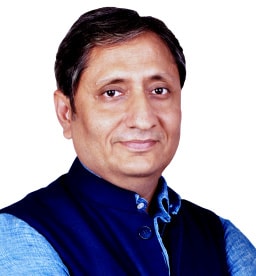 An important voice against these threats is television journalist Ravish Kumar. Raised in Jitwarpur village in Hindi-speaking Bihar, northeast India, Ravish pursued his early interest in history and public affairs through postgraduate studies in history from Delhi University.
An important voice against these threats is television journalist Ravish Kumar. Raised in Jitwarpur village in Hindi-speaking Bihar, northeast India, Ravish pursued his early interest in history and public affairs through postgraduate studies in history from Delhi University.
In 1996, he joined New Delhi Television Network (NDTV), one of India’s leading TV networks and worked his way up from being a field reporter. After NDTV launched its 24-hour Hindi-language news channel — NDTV India — targeting the country’s 422 million native speakers of Hindi, he was given his own daily show, “Prime Time.”
Today, as NDTV India’s managing editor, Ravish is one of India’s most influential TV journalists. His more important distinction, however, comes from the kind of journalism he represents.
In a media environment threatened by an interventionist state, toxic with jingoist partisans, trolls and purveyors of “fake news,” and where the competition for market ratings has put the premium on “media personalities,” “tabloidization,” and audience-pandering sensationalism, Ravish has been most vocal on insisting that the professional values of sober, balanced, fact-based reporting be upheld in practice.
He interacts easily with the poor, travels extensively, and uses social media to stay in touch with his audience, generating from them the stories for his program. Striving for a people-based journalism, he calls his newsroom “the people’s newsroom.”
Keeping faith with a journalism that puts service to the people at its center, Ravish sums up what he believes a journalist is in the most basic terms: “If you have become the voice of the people, you are a journalist.”
Ryan Cayabyab (Philippines)
Versatile, a consummate professional, and universally liked, Ryan Cayabyab is virtually omnipresent in the Philippine music industry today. For over four decades, his contributions as a composer, arranger, music director, conductor, performer, and educator have been huge.
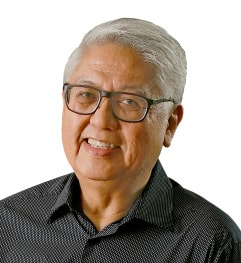 Ryan started to write music in the late 1970s, making his mark when his signature song “Kay Ganda ng Ating Musika” (How Beautiful is Our Music) won the grand prize in the first Metro Manila Popular Music Festival (Metropop) in 1978 and in an international song festival in South Korea in the same year. He went on to win in other competitions and performed widely in the Philippines and abroad. Ryan is driven by a passion to mentor, educate, and contribute to the flourishing of Filipino musical talent.
Ryan started to write music in the late 1970s, making his mark when his signature song “Kay Ganda ng Ating Musika” (How Beautiful is Our Music) won the grand prize in the first Metro Manila Popular Music Festival (Metropop) in 1978 and in an international song festival in South Korea in the same year. He went on to win in other competitions and performed widely in the Philippines and abroad. Ryan is driven by a passion to mentor, educate, and contribute to the flourishing of Filipino musical talent.
He has served in the music faculty of the University of the Philippines, runs a music studio with his wife, and has conducted free workshops for thousands of students all across the country. He is a moving force in the Philpop Musicfest Foundation and the Elements Music Camp, major initiatives dedicated to music training, promoting Filipino music abroad, and fostering Filipino cultural identity through music. Honored in 2018 as Philippine National Artist for Music, he was cited for his music that “extols the exuberance of life and human happiness, thus capturing the very essence of our Filipino soul.”
An inspiration and guiding light to many, Ryan says, “The next generation should be better than us for our country to move forward. For this to happen, we must teach them everything we know at every possible instance. I like teaching, I like sharing what I know, and I like playing music. When I’m doing all these, I’m very happy.”
Kim, Jong-ki (South Korea)
South Korea has one of the highest suicide rates among the world’s developed countries. The incidence of teenage suicides is particularly disturbing. Official statistics of the Organization for Economic Cooperation and Development (OECD) indicated that in 2005 the suicide rate among middle and high school students stood at 7.6 students per 100,000. The causal factors are complex but what stands out is that more than half of the suicides were directly related to school bullying.
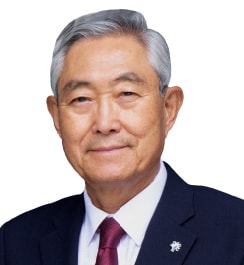 In 1995, Kim Jong-ki was a highly successful businessman handling market operations in China for a giant Korean electronics company. Married, with a son and daughter, he was at the height of his career when tragedy struck.
In 1995, Kim Jong-ki was a highly successful businessman handling market operations in China for a giant Korean electronics company. Married, with a son and daughter, he was at the height of his career when tragedy struck.
He was traveling in China when he learned that his sixteen-year-old son, Dae-hyun, had ended his life, leaving no clues as to the reason; Jong-ki would learn later from Dae-hyun’s friends that it was bullying in school that drove him to end his life. The suicide devastated the family.
It was no consolation to them that bullying and school violence were not recognized as life-threatening problems by the government or Korean society. Worse, those who repeatedly inflicted violence on his son continued to bully others. Heartbroken, Jong-ki knew he had to do something to channel his grief and to prevent similar youth tragedies.
In the year his son died, Jong-ki established the Foundation for Preventing Youth Violence (FPYV), the first organized effort in South Korea to address school violence as a systemic social problem affecting students, families, schools, and the community-at-large.
Over the next twenty-four years, Jong-ki and his staff painstakingly developed a holistic program of detection, protection, and management in youth violence. Under Jong-ki’s committed leadership, FPYV carried out wide-ranging anti-bullying campaigns which included seminars, rallies, concerts and films; operated a hotline which now takes thirty to fifty calls daily, with the capacity to dispatch staff to respond to urgent cases, and lobbied for needed government policy and legislation.
The impact of Jong-ki and FPYV on Korean society has been profound, establishing a nationwide presence and creating collective action on a social problem hitherto neglected. A 2018 survey showed that since FPYV started its campaign in 1995, the incidence of school violence has dropped from twenty percent to three percent.
Yet Jong-ki knows that there is still much work to be done, even as he explains his work simply, “It was God’s command that I contribute my life to this cause. It is my promise to my son.” It is a promise he has fulfilled not only to his son but to all of Korea’s youth.
Well-springs of Hope
At the conclusion, Vice President Leni Robredo shared an empowering speech on what it means to be Asian today longing for equality, empathy, truth and accountability from all sectors in society.
She described the awardees as well-springs of hope. She encouraged everyone to rise up from parochial interests, and to protect democracy and human rights especially in this “dark narrative of Asia” where the tendency towards ultra-nationalism, extremism, and the use of brutal force to silence critics and oppress the poor.
She emphasized the role of the Ramon Magsaysay Awards to the continent and the rest of the world as it continues to honor and celebrate true Asian excellence. She ended her speech with an excerpt from President Ramon Magsaysay’s Inaugural Address back in December 30, 1953: “We have a glorious past, now we must build a future worthy of that past.”
Compiled by Jose Aranas
Source: rmaward.asia




